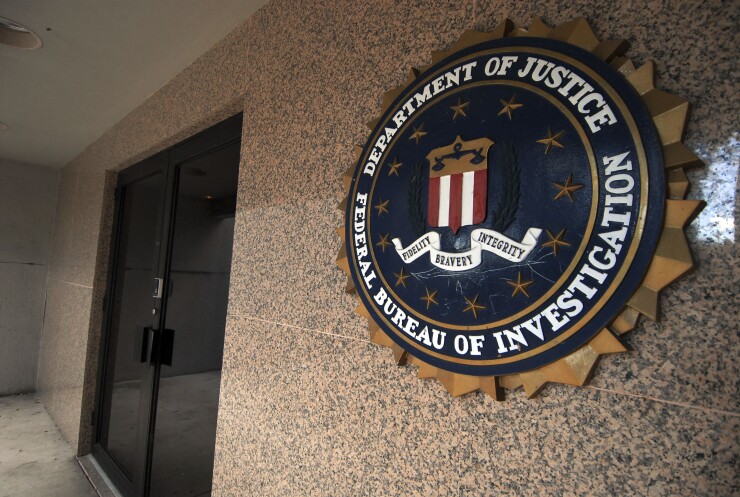A client's hot stock tips on pharmaceutical deals netted his adviser and himself tens of thousands of dollars ― and the attention of regulators.
Now the adviser has been sentenced to six months in prison for an insider trading scheme that extended over eight years, according to federal prosecutors.
"David Hobson used his relationship with a childhood friend to obtain inside information, and then traded on that information, making hundreds of thousands of dollars in illegal profits," Acting U.S. Attorney Joon Kim said in a statement.
Hobson was sentenced last week in federal court in Manhattan, according to the U.S. Attorney's office for the Southern District of New York. Judge Laura Swain also ordered Hobson, 48, to forfeit over $385,000 and sentenced him to an additional two years of supervised release.
Hobson, a former Oppenheimer & Co. broker, previously pleaded guilty in October.
"I believe it was a fair sentence," says his attorney, Michael Barrows, who is with the Law Offices of Anthony A. Capetola in Williston Park, New York.
Barrows noted that the punishment was lighter than what prosecutors requested, and that Hobson's lack of previous offenses played a role.
"He had an unblemished career for 22 years," Barrows says.
FINRA BrokerCheck records lists no client complaints during his career.
Stocks and Puerto Rican bonds are the focus of many cases among clients, advisers and firms.
CHILDHOOD FRIENDS?
Hobson and former client Michael Maciocio had been friends since they were kids, authorities say. However, Barrows disputes the closeness of their relationship, saying they merely knew one another since childhood.
Maciocio, 47, had been Hobson's client for several years, according to authorities.
From 2008 to 2014, the adviser and client engaged in a scheme to trade stocks in advance of acquisitions and transactions under consideration by the pharmaceutical company where Maciocio worked, say authorities, who did not name the firm.

Maciocio served as a master planner in his company's active pharmaceutical ingredient supply chain group ― a position that occasionally required him to give input on the impact of potential acquisitions, and therefore allowed him to learn of impending transactions, according to authorities.
He didn't know the names of potential acquisitions, but he was able to figure out their identities because he knew his company's code names for acquisitions, drug indications, dosages and the chemical structure of the drugs, prosecutors say.
Maciocio then traded on that information and provided it to Hobson, who also used it for trades on behalf of other clients.
Hobson netted about $165,000 for himself, while Maciocio pocketed $40,000, according to authorities. Hobson also reaped almost $150,000 for other clients, based on his insider knowledge.
Michael Bonevento and his team left Ameriprise in 2019 to join LPL Financial. He says too much time has elapsed for him to now be accused of misappropriating client information.
Gordon Gray is the executive director of the Pinpoint Policy Institute. Prior to launching Pinpoint, Gordon served as the vice president for economic policy at the American Action Forum, where his portfolio included the federal budget, taxes, the macroeconomic outlook and general economic policy matters.
A court of appeals agreed with Commonwealth's contention that a jury should decide if investors were harmed by investment disclosures allegedly withheld from them.
Maciocio, 47, pleaded guilty to securities fraud in May 2016. His sentencing has not been scheduled. His attorney could not be reached for immediate comment.
Hobson had been an adviser since 1994; he started his career at Dickinson & Co., a brokerage firm FINRA expelled in 1998, according to BrokerCheck records. He later worked at RBC before moving to Oppenheimer in 2010.
A spokesman for Oppenheimer said the company "cooperated extensively with government authorities throughout the course of their investigation."
Hobson has not worked at the company since May 2016, according to BrokerCheck records. Barrows confirmed his departure.
A parallel case involving SEC charges against Hobson has not yet been resolved.
The U.S. Attorney's office credited the regulator, as well as the FBI, with assisting the investigation.









